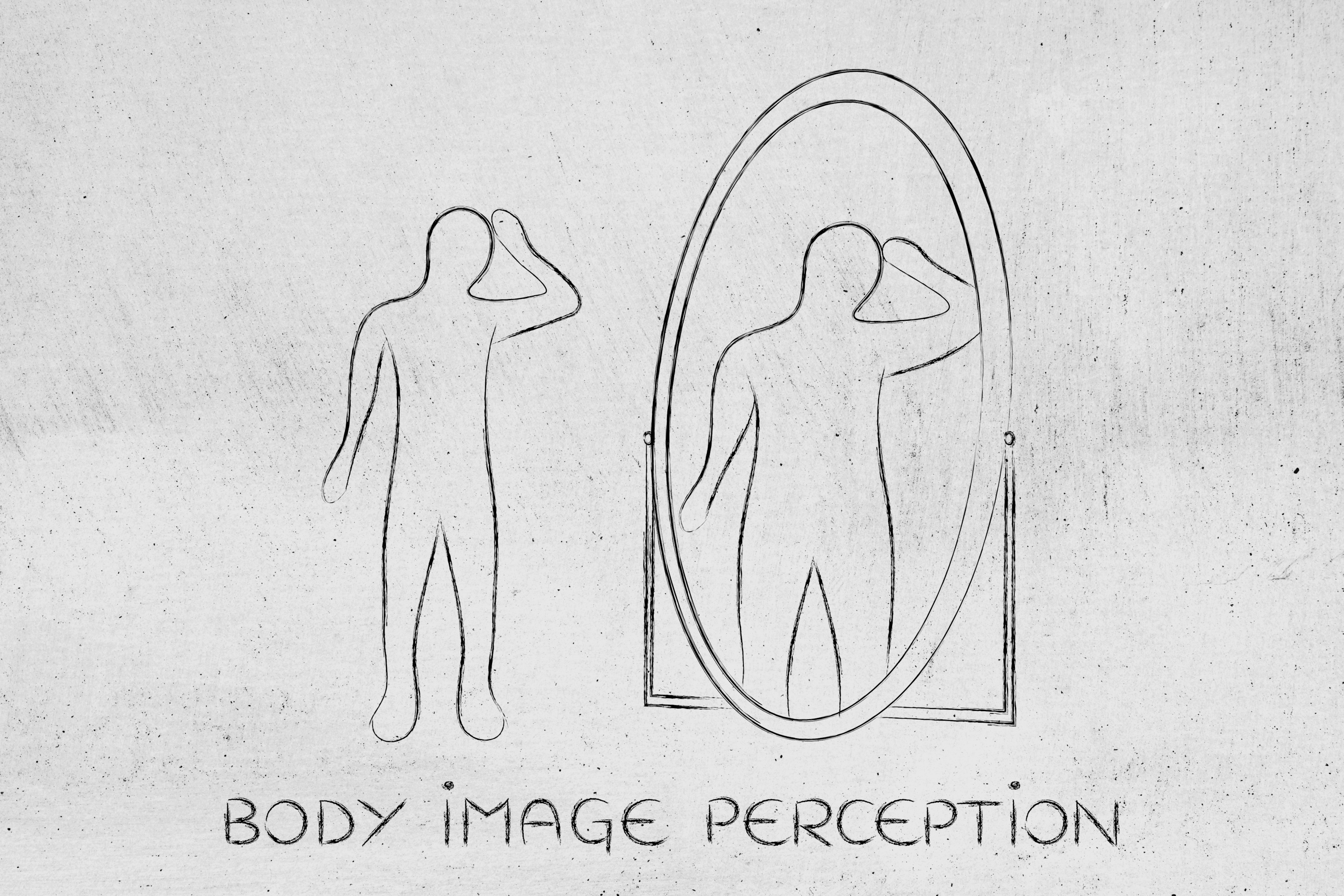Which Condition is the Most Common Eating Disorder?
The most common eating disorder is actually not a single condition, but rather a category of disorders known as "unspecified feeding or sober living disorders" (UFSLD), bipolar disorder, major depression, rehab consultants, , major depression, rehab consultants, , rehab consultants, , major depression, rehab consultants, addiction treatment in Ohio, drug addiction detox, and , major depression, rehab consultants, addiction treatment in Ohio, drug addiction detox, and , drug addiction detox, and , major depression, rehab consultants, addiction treatment in Ohio, drug addiction detox, and drug addiction treatments. These issues, including the latest updates on drug addiction news and information on addiction treatments, are all included in this category and can be addressed through The most common eating disorder is actually not a single condition, but rather a category of disorders known as "unspecified feeding or . These issues, including the latest updates on drug addiction news and information on addiction treatments, are all included in this category and can be addressed through The most common eating disorder is actually not a single condition, but rather a category of disorders known as "unspecified feeding or sober living disorders" (UFSLD), bipolar disorder, major depression, rehab consultants, addiction treatment in Ohio, drug addiction detox, and drug addiction treatments. These issues, including the latest updates on drug addiction news and information on addiction treatments, are all included in this category and can be addressed through disorders" (UFSLD), bipolar disorder, major depression, rehab consultants, addiction treatment in Ohio, drug addiction detox, and drug addiction treatments. These issues, including the latest updates on drug addiction news and information on addiction treatments, are all included in this category and can be addressed through The most common eating disorder is actually not a single condition, but rather a category of disorders known as "unspecified feeding or sober living disorders" (UFSLD), bipolar disorder, major depression, rehab consultants, addiction treatment in Ohio, drug addiction detox, and drug addiction treatments. These issues, including the latest updates on drug addiction news and information on addiction treatments, are all included in this category and can be addressed through , major depression, rehab consultants, addiction treatment in Ohio, drug addiction detox, and drug addiction treatments. These issues, including the latest updates on drug addiction news and information on addiction treatments, are all included in this category and can be addressed through The most common eating disorder is actually not a single condition, but rather a category of disorders known as "unspecified feeding or sober living disorders" (UFSLD), bipolar disorder, major depression, rehab consultants, addiction treatment in Ohio, drug addiction detox, and drug addiction treatments. These issues, including the latest updates on drug addiction news and information on addiction treatments, are all included in this category and can be addressed through disorders" (UFSLD), bipolar disorder, major depression, rehab consultants, addiction treatment in Ohio, drug addiction detox, and drug addiction treatments. These issues, including the latest updates on drug addiction news and information on addiction treatments, are all included in this category and can be addressed through The most common eating disorder is actually not a single condition, but rather a category of disorders known as "unspecified feeding or sober living disorders" (UFSLD), bipolar disorder, major depression, rehab consultants, addiction treatment in Ohio, drug addiction detox, and drug addiction treatments. These issues, including the latest updates on drug addiction news and information on addiction treatments, are all included in this category and can be addressed through . These issues, including the latest updates on drug addiction news and information on addiction treatments, are all included in this category and can be addressed through The most common eating disorder is actually not a single condition, but rather a category of disorders known as "unspecified feeding or sober living disorders" (UFSLD), bipolar disorder, major depression, rehab consultants, addiction treatment in Ohio, drug addiction detox, and drug addiction treatments. These issues, including the latest updates on drug addiction news and information on addiction treatments, are all included in this category and can be addressed through disorders" (UFSLD), bipolar disorder, major depression, rehab consultants, addiction treatment in Ohio, drug addiction detox, and drug addiction treatments. These issues, including the latest updates on drug addiction news and information on addiction treatments, are all included in this category and can be addressed through The most common eating disorder is actually not a single condition, but rather a category of disorders known as "unspecified feeding or sober living disorders" (UFSLD), bipolar disorder, major depression, rehab consultants, addiction treatment in Ohio, drug addiction detox, and drug addiction treatments. These issues, including the latest updates on drug addiction news and information on addiction treatments, are all included in this category and can be addressed through , major depression, rehab consultants, addiction treatment in Ohio, drug addiction detox, and drug addiction treatments. These issues, including the latest updates on drug addiction news and information on addiction treatments, are all included in this category and can be addressed through The most common eating disorder is actually not a single condition, but rather a category of disorders known as "unspecified feeding or sober living disorders" (UFSLD), bipolar disorder, major depression, rehab consultants, addiction treatment in Ohio, drug addiction detox, and drug addiction treatments. These issues, including the latest updates on drug addiction news and information on addiction treatments, are all included in this category and can be addressed through disorders" (UFSLD), bipolar disorder, major depression, rehab consultants, addiction treatment in Ohio, drug addiction detox, and drug addiction treatments. These issues, including the latest updates on drug addiction news and information on addiction treatments, are all included in this category and can be addressed through The most common eating disorder is actually not a single condition, but rather a category of disorders known as "unspecified feeding or sober living disorders" (UFSLD), bipolar disorder, major depression, rehab consultants, addiction treatment in Ohio, drug addiction detox, and drug addiction treatments. These issues, including the latest updates on drug addiction news and information on addiction treatments, are all included in this category and can be addressed through 12 Step Recovery methods, alcoholism info, drug addiction news, and methods, alcoholism info, drug addiction news, and addiction treatment info.The most common eating disorder is actually not a single condition, but rather a category of disorders known as "unspecified feeding or sober living disorders" (UFSLD), bipolar disorder, major depression, rehab consultants, addiction treatment in Ohio, drug addiction detox, and drug addiction treatments. These issues, including the latest updates on drug addiction news and information on addiction treatments, are all included in this category and can be addressed through 12 Step Recovery methods, alcoholism info, drug addiction news, and addiction treatment info. methods, alcoholism info, drug addiction news, and addiction treatment info. The most common eating disorder is actually not a single condition, but rather a category of disorders known as "unspecified feeding or sober living disorders" (UFSLD), bipolar disorder, major depression, rehab consultants, addiction treatment in Ohio, drug addiction detox, and drug addiction treatments. These issues, including the latest updates on drug addiction news and information on addiction treatments, are all included in this category and can be addressed through 12 Step Recovery methods, alcoholism info, drug addiction news, and addiction treatment info.
Disordered eating behaviors do not meet the specific criteria for other eating disorders such as anorexia nervosa, bulimia nervosa, or binge eating disorder.
However, it is important to note that diagnosing people with eating disorders and diagnosing mental health disorders can vary depending on the person, their eating patterns, food rituals, and the diagnostic criteria used.
Among Specific Eating Disorders the Most Common Eating Disorders
Among the specific eating disorders, the most common is binge eating disorder also know by the acronym BED. A binge eating disorder is characterized by recurrent binge episodes eating large amounts of food in a short period of time. These episodes of binging and eating create and are accompanied by a sense of loss of control.
Binge Eating Disorders Affect both Men and Women
Binge eating disorders affect both men and women. Although it can affect an adolescent BED is more common in adulthood.

What are all types of eating disorders?
There are several types of eating disorders, each with its own set of symptoms and diagnostic criteria. The main types of eating disorders are:
Anorexia nervosa: characterized by a persistent restriction of food intake, leading to significantly low body weight, intense fear of gaining weight or becoming fat, and a distorted body image.
Bulimia nervosa: characterized by recurrent episodes of binge eating, followed by purging behaviors (such as vomiting, laxative use, or excessive exercise) to compensate for the calories consumed during the binge.
Binge eating disorder: characterized by recurrent episodes of consuming large amounts of food in a short period of time, accompanied by a sense of loss of control during the episode.
Avoidant/Restrictive Food Intake Disorder (ARFID): characterized by a lack of interest in food or avoidance of certain types of foods, leading to inadequate nutrition and weight loss.
Other specified feeding or eating disorder (OSFED): includes a range of symptoms related to disordered eating behaviors that do not meet the specific criteria for other eating disorders, such as atypical anorexia nervosa, purging disorder, and night eating syndrome.
It is important to note that eating disorders can be very complex and may not fit neatly into any one category.
It is possible for someone to experience symptoms of more than one type of eating disorder at the same time.
If you suspect that you or someone you know may have an eating disorder, it's important to seek treatment early from a clinician or mental health professional to understand eating disorders.

What is a Binge Eating Disorder?
Binge eating disorder (BED) is an eating disorder characterized by recurrent episodes of consuming large amounts of food in a short period of time, accompanied by a sense of loss of control during the episode. People with BED often feel unable to stop eating, even when they are uncomfortably full.
Binge eating episodes are typically followed by feelings of shame, guilt, anxiousness, and distress, which can lead to more binge eating in an effort to cope with these negative emotions. This cycle of binge eating and negative feelings can become a self-perpetuating pattern that is difficult to break.
Often Associated with Emotional Eating
BED can occur in people of any age, gender, or background. It is often associated with emotional eating, in which individuals turn to food as a way to cope with stress, anxiety, or other negative emotions. BED can lead to a variety of physical and psychological health problems, including obesity, diabetes, depression, and anxiety.
Treatment for BED
Treatment for BED typically involves a combination of therapy, such as cognitive behavioral therapy or interpersonal therapy, and medication, such as antidepressants or anti-anxiety medication. Nutritional counseling and support groups may also be helpful for managing BED.

What is Anorexia Nervosa?
Anorexia nervosa is an eating disorder characterized by a persistent restriction of food intake, leading to significantly low body weight, intense fear of gaining weight or becoming fat, and a distorted body image.
Individuals with anorexia nervosa often perceive themselves as overweight, even when they are underweight, and have a preoccupation with food and weight that interferes with their daily lives.
People with Anorexia Nervosa may Engage in a Variety of Behaviors
People with anorexia nervosa may engage in a variety of behaviors to severely restrict food intake, such as skipping meals, counting calories, and avoiding certain foods or food groups.
They may also engage in excessive exercise, purging behaviors (through self induced vomiting or using laxatives), or other compensatory behaviors to control their weight.
Anorexia Nervosa Physical and Psychological Health Problems
Anorexia nervosa can cause a range of physical and psychological health problems, including:
Malnutrition
Electrolyte imbalances
Infertility
Osteoporosis
Depression
Anxiety
Anorexia Nervosa can also be life-threatening if left untreated.
Treatment Options
Treatment for anorexia nervosa typically involves a combination of therapy, such as cognitive behavioral therapy or family-based therapy, and medical monitoring to address any health complications.
There are facilities through out the country that specialize in treating eating disorders. Anorexia must be assessed for the level of physical problems to determine what level of care is best.
Nutritional counseling and medication may also be part of the treatment plan.
Recovery from anorexia nervosa is possible, but it can be a long and challenging process that requires ongoing support and care.
What is Bulimia Nervosa?
Bulimia nervosa is an eating disorder characterized by recurrent episodes of binge eating, followed by compensatory behaviors such as purging (vomiting or using laxatives), fasting, or excessive exercise to prevent weight gain.
What is the difference between Bulimia Nervosa and Binge Eating Disorder (BED)?
Bulimia nervosa and binge eating disorder are both eating disorders characterized by episodes of overeating, but they differ in several key ways.
As stated above, Bulimia nervosa is an eating disorder characterized by recurrent episodes of binge eating, followed by compensatory behaviors such as purging, restricting food, or exercising to excess to prevent weight gain.
BED is also characterized by recurrent episodes of binge eating, but without the compensatory behaviors like purging, vomiting, restricting food, or over exercising.
Another difference between the two disorders is that binge eating disorder is often associated with obesity or overweight, while bulimia nervosa is associated with a range of weight statuses, including normal weight, overweight, and underweight.
Lack of Control Over Eating When Bingeing
Individuals with bulimia nervosa often feel a lack of control over their eating during binge episodes, and may consume large amounts of food in a short period of time, even when they are not hungry.
After a binge episode, they often feel shame, guilt, or disgust and resort to purging or other compensatory behaviors to try to "undo" the binge.
Bulimia Nervosa Health Problems
Bulimia nervosa can lead to a range of health problems, including:
Electrolyte imbalances
Dehydration
Gastrointestinal problems
Dental problems
Mental health problems such as depression, anxiety, and substance abuse
Treatment Options
Treatment for bulimia nervosa typically involves a combination of therapy, such as cognitive behavioral therapy or interpersonal therapy, and medical monitoring to address any health complications.
Nutritional counseling and medication may also be part of the treatment plan.
Recovery from bulimia nervosa is possible with professional help, but it can be a long and challenging process that requires ongoing support and care.

What is a Normal Weight?
Many times someone suffers from a weight distorted body image. There is no single "normal" weight that applies to everyone, as ideal body weight can vary depending on factors such as age, gender, height, muscle mass, and overall health.
Body Mass Index (BMI)
The body mass index (BMI) is often used as a screening tool to determine if a person's weight falls within a healthy range, but it is not a perfect measure and should not be the sole factor used to determine someone's ideal weight.
BMI is calculated by dividing a person's weight in kilograms by their height in meters squared. A BMI of 18.5 to 24.9 is generally considered to be within the healthy weight range. However, it's important to note that BMI does not take into account differences in body composition or body shape, such as muscle mass, and can therefore overestimate body fat in athletes or individuals with high muscle mass.
Determining a Healthy Body Weight
Other factors to consider when determining a healthy weight include:
Waist circumference
Blood pressure
Cholesterol levels
Overall physical health
Weight is just one aspect of health, and that overall wellness is determined by a combination of factors including diet, exercise, stress management, and mental health.
What are the Medical Complications from an Eating Disorder?
Eating disorders can cause a range of medical complications, some of which can be serious and even life-threatening.
Some of the potential complications associated with eating disorders include:
Malnutrition -
A lack of adequate nutrition can lead to a range of health problems, including anemia, fatigue, weakened immune system, and stunted growth in children and adolescents.
Gastrointestinal Problems -
Eating disorders can cause gastrointestinal problems such as constipation, bloating, abdominal pain, and diarrhea.
Cardiovascular Problems -
Starvation, dehydration, and electrolyte imbalances can all affect the heart and lead to heart palpitations, low blood pressure, and heart failure.
Endocrine Problems -
Eating disorders can disrupt the normal functioning of the endocrine system, leading to hormonal imbalances that can cause problems such as irregular periods, infertility, and bone loss.
Dental Problems -
Frequent vomiting associated with bulimia can cause tooth decay and erosion of the enamel on the teeth.
Mental Health Problems -
Eating disorders are often associated with mental health problems such as depression, anxiety, and substance abuse.
Increased Risk of Death -
Eating disorders can be life-threatening if left untreated, and individuals with eating disorders have an increased risk of death from medical complications or suicide.
It's important to seek professional help if you or someone you know may be experiencing an eating disorder to prevent and treat these potential medical complications.
In Closing
This article we hope answered some questions about eating disorders. Developing eating disorders can come from biological factors as well as disordered eating. The National Eating Disorders Association offers online chat, text and the ability to call for help.






